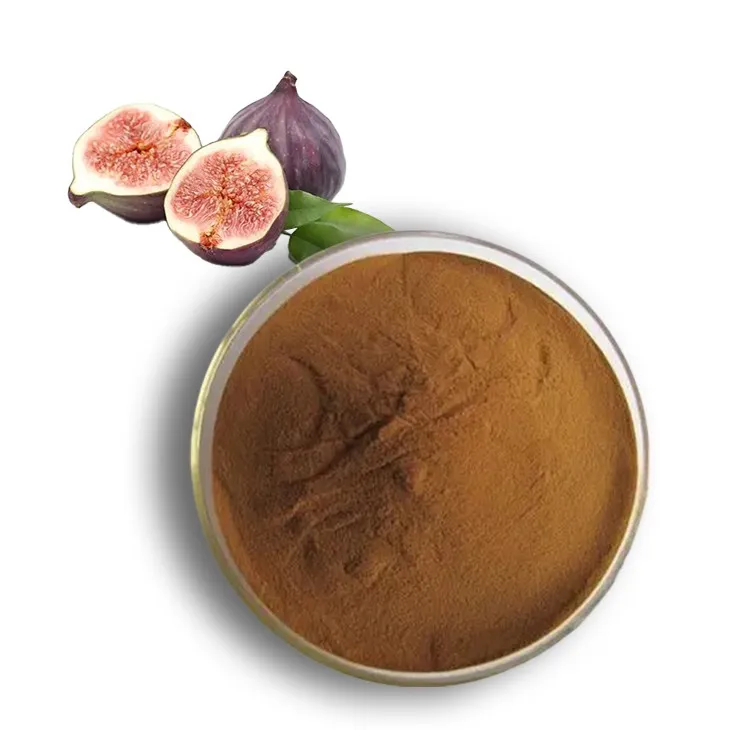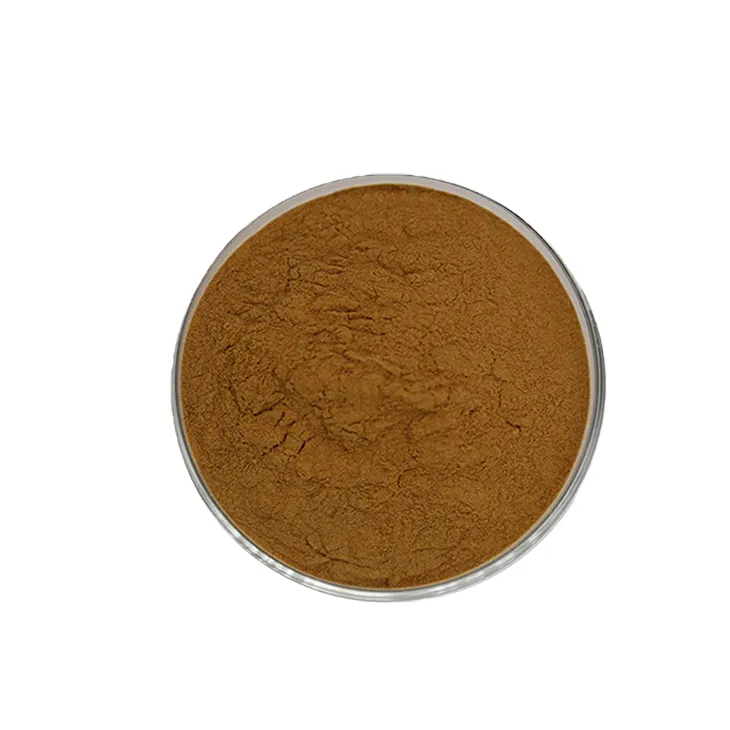- 0086-571-85302990
- sales@greenskybio.com
Five Effects of Fig Extract + Dosage, Side Effects
2024-11-13

1. Introduction
Fig Extract has been garnering increasing attention in recent years due to its potential health benefits. Figs themselves are rich in nutrients, and the extract derived from them is believed to possess various properties that can positively impact human health. This article aims to comprehensively explore five significant effects of Fig Extract, as well as provide information regarding its appropriate dosage and potential side effects.

2. Effects of Fig Extract
2.1 Antioxidant Effect
Figs are a great source of antioxidants, and fig extract retains these beneficial properties. Antioxidants play a crucial role in the body by neutralizing free radicals. Free radicals are unstable molecules that can cause damage to cells, DNA, and proteins. This damage is associated with various chronic diseases such as cancer, heart disease, and neurodegenerative disorders.
The antioxidant compounds in fig extract, such as phenolic acids and flavonoids, scavenge free radicals and prevent oxidative stress. By doing so, they help to maintain the integrity of cells and support overall health. For example, a study has shown that the antioxidant activity of fig extract can reduce the risk of lipid peroxidation in cells, which is a key process in the development of atherosclerosis.
2.2 Anti - inflammatory Effect
Chronic inflammation is a common underlying factor in many diseases. Fig extract has demonstrated anti - inflammatory properties, which can be beneficial for individuals with inflammatory conditions.
It contains bioactive compounds that can modulate the body's immune response and reduce inflammation. These compounds interact with the body's inflammatory pathways, suppressing the production of pro - inflammatory cytokines. For instance, in animal models of arthritis, fig extract has been shown to reduce joint swelling and pain by decreasing the levels of inflammatory markers in the affected joints.
2.3 Digestive Health Promotion
Fig extract can have a positive impact on digestive health. Figs are known for their high fiber content, and the extract also contains components that can aid in digestion.
It can help to regulate bowel movements, preventing constipation. The fiber in fig extract adds bulk to the stool, making it easier to pass through the digestive tract. Additionally, it may also promote the growth of beneficial gut bacteria. These bacteria play an important role in maintaining a healthy gut microbiome, which is associated with improved digestion, nutrient absorption, and immune function.
2.4 Blood Sugar Regulation
Some studies suggest that fig extract may have a role in blood sugar regulation. It contains certain compounds that can affect glucose metabolism.
These compounds may help to improve insulin sensitivity, allowing cells to more effectively take up glucose from the bloodstream. In diabetic animal models, fig extract has been shown to lower blood glucose levels. However, more research is needed to fully understand its mechanism of action and its potential application in human diabetes management.
2.5 Cardiovascular Health Support
Fig extract can contribute to cardiovascular health in multiple ways. As mentioned earlier, its antioxidant effect helps to prevent the oxidation of LDL cholesterol, which is a key step in the development of atherosclerosis.
Furthermore, it may also have a positive impact on blood pressure regulation. Some of the bioactive compounds in fig extract can relax blood vessels, reducing peripheral resistance and thereby lowering blood pressure. A healthy cardiovascular system is essential for overall well - being, and fig extract may offer a natural means of supporting it.

3. Dosage of Fig Extract
The appropriate dosage of fig extract can vary depending on several factors, including the form of the extract (e.g., liquid, capsule), the intended use, and individual health conditions.
For general health maintenance, a typical dosage might be around 500 - 1000 mg per day of a standardized fig extract. However, when using fig extract for specific health concerns such as digestive issues or blood sugar regulation, it is advisable to consult a healthcare professional.
In the case of fig extract supplements, it is important to follow the manufacturer's recommended dosage instructions. Over - dosing on fig extract may lead to potential adverse effects, although research in this area is still limited.

4. Side Effects of Fig Extract
While fig extract is generally considered safe for most people, there are some potential side effects that should be noted.
- Allergic Reactions: Some individuals may be allergic to figs or components in the fig extract. Allergic symptoms can include skin rashes, itching, swelling, and in severe cases, difficulty breathing. People with known allergies to figs should avoid using fig extract.
- Digestive Upset: In some cases, excessive consumption of fig extract may cause digestive discomfort. This can include symptoms such as nausea, vomiting, abdominal cramps, and diarrhea. To avoid such issues, it is important to adhere to the recommended dosage.
- Interactions with Medications: Fig extract may interact with certain medications. For example, if you are taking medications for diabetes or blood pressure, it is important to consult your doctor before starting fig extract supplementation, as it may potentiate or interfere with the effects of these medications.
5. Conclusion
Fig extract offers a range of potential health benefits, including antioxidant, anti - inflammatory, digestive health promotion, blood sugar regulation, and cardiovascular health support. However, it is important to use it in the appropriate dosage and be aware of potential side effects.
Before incorporating fig extract into your health regimen, it is advisable to consult a healthcare professional, especially if you have pre - existing health conditions or are taking medications. With proper use, fig extract may be a valuable addition to promoting overall health and well - being.
FAQ:
What are the five effects of fig extract?
Fig extract may have effects such as antioxidant, anti - inflammatory, antibacterial, potential blood - sugar - regulating, and digestive - system - promoting effects. However, more research is often needed to fully confirm these.
How should fig extract be dosed?
The dosage of fig extract can vary depending on many factors such as the intended use (e.g., for general health or for treating a specific condition), the form of the extract (powder, liquid, etc.), and individual factors like age and health status. In general, it is best to follow the instructions on the product label if it is a commercial product. For more specific or medical - related use, it should be determined under the guidance of a healthcare professional.
What are the possible side effects of fig extract?
Some people may experience allergic reactions to fig extract. In addition, if taken in excessive amounts, it may cause digestive discomfort such as nausea, vomiting, or diarrhea. However, side effects are relatively rare and most people tolerate it well when used appropriately.
Can fig extract be used for long - term?
While there is no clear evidence indicating that long - term use of fig extract is harmful in general, it is still important to monitor for any potential adverse effects during long - term use. If used for a long - time for a specific medical purpose, regular check - ups with a healthcare provider are advisable.
Is fig extract safe for everyone?
No, fig extract may not be safe for everyone. People with known allergies to figs should avoid it. Also, pregnant or breastfeeding women should be cautious and consult a doctor before using fig extract, as there is limited research on its safety in these populations.
Related literature
- The Bioactive Compounds and Potential Health Benefits of Fig (Ficus carica L.)"
- "Antioxidant and Anti - inflammatory Properties of Fig Extract: A Review"
- ▶ Hesperidin
- ▶ citrus bioflavonoids
- ▶ plant extract
- ▶ lycopene
- ▶ Diosmin
- ▶ Grape seed extract
- ▶ Sea buckthorn Juice Powder
- ▶ Beetroot powder
- ▶ Hops Extract
- ▶ Artichoke Extract
- ▶ Reishi mushroom extract
- ▶ Astaxanthin
- ▶ Green Tea Extract
- ▶ Curcumin Extract
- ▶ Horse Chestnut Extract
- ▶ Other Problems
- ▶ Boswellia Serrata Extract
- ▶ Resveratrol Extract
- ▶ Marigold Extract
- ▶ Grape Leaf Extract
- ▶ blog3
-
High purity olive leaf extract
2024-11-13
-
Lavender oil extraction method
2024-11-13
-
100% organic virgin sea buckthorn fruit oil
2024-11-13
-
Lotus leaf extract powder factory in China
2024-11-13
-
China aged garlic extract supplier
2024-11-13
-
Deer antler extract powder manufacturer
2024-11-13
-
Saw palmetto extract vs whole herb
2024-11-13
-
Hericium erinaceus extract powder
2024-11-13
-
Maca Extract
2024-11-13
-
Licorice Root Extract Powder
2024-11-13
-
Pine bark Extract Powder
2024-11-13
-
Grape Leaf Extract
2024-11-13
-
Oyster Mushroom Extract Powder
2024-11-13
-
Saffron Extract Powder
2024-11-13
-
Citrus Aurantii Extract
2024-11-13
-
Propolis Extract Powder
2024-11-13
-
Kelp Extract Powder
2024-11-13





















